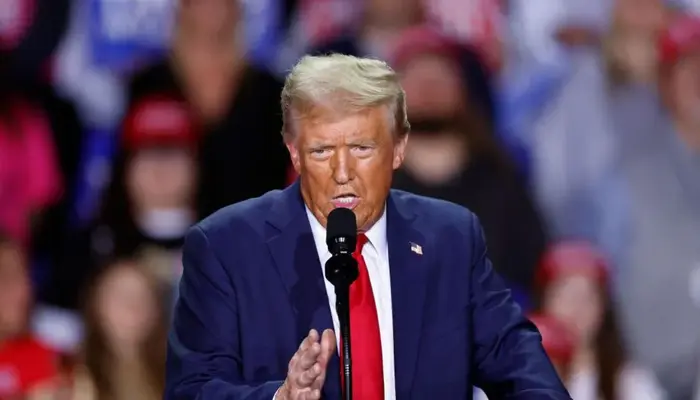US President-elect Donald Trump has requested the Supreme Court to delay a looming law that could ban TikTok if its Chinese parent company, ByteDance, does not sell the app. The keyword “TikTok ban” underscores a major issue as the deadline for divestment approaches on January 19, just a day before Trump’s inauguration. Trump’s legal team called for a pause to allow time for a “political resolution” to the matter.
TikTok Ban Sparks National Debate
During his first term, Trump strongly opposed TikTok, citing national security concerns. He argued that the Chinese government could exploit the platform to access American user data or manipulate its content. These concerns, shared by officials from both political parties, led to calls for TikTok to be sold to a US company.
President Joe Biden, who succeeded Trump, took an even tougher stance by signing a law to ban the app altogether unless ByteDance divested its ownership. However, TikTok and the Chinese government have denied allegations of data misuse or propaganda.
Trump’s Changing Stance
In a surprising reversal, Trump recently softened his position on TikTok. At a press conference, he revealed a newfound “warm spot” for the app and pledged to reassess the potential ban. Earlier this month, Trump met TikTok CEO Shou Zi Chew at his Mar-a-Lago residence, signaling a willingness to explore alternative solutions.
Speaking to Bloomberg, Trump justified his shift in perspective: “I’m for TikTok because you need competition. Without it, you only have Facebook and Instagram—Zuckerberg’s monopoly.” His remarks highlighted his dissatisfaction with Meta, the parent company of Facebook and Instagram, which banned him after the January 6, 2021, Capitol attack.
Read: China Stocks Edge Higher in Thin Year-End Trading
Legal Challenges and Free Speech Concerns
TikTok has challenged the law, arguing that it violates its First Amendment rights to free speech. The app contends that banning it would not only disrupt millions of American users but also set a dangerous precedent for online censorship.
Several free speech organizations, including the American Civil Liberties Union, have filed briefs opposing the law. They argue that the ban is “unprecedented” and threatens Americans’ ability to access diverse content and audiences online.
In a brief filed on Friday, Trump’s lawyer, John Sauer, clarified that the president-elect is not taking a stance on the legal merits of the case. Instead, Sauer urged the Supreme Court to stay the January 19 deadline, allowing the new administration time to explore a political resolution.
Supreme Court to Hear Case
The Supreme Court has agreed to hear TikTok’s appeal, with oral arguments scheduled for January 10. Given the tight timeline, the court will need to move swiftly to address the case.
TikTok’s appeal focuses on the Protecting Americans from Foreign Adversary Controlled Applications Act, the legislation that mandates its sale or ban. The outcome of the case could have far-reaching implications for free speech, data privacy, and the regulation of foreign-owned technology platforms in the US.
This contentious issue has thrust TikTok into the center of a national debate, as the clock ticks down on a decision that could reshape the digital landscape.
Follow us on Google News, Instagram, YouTube, Facebook,Whats App, and TikTok for latest updates
